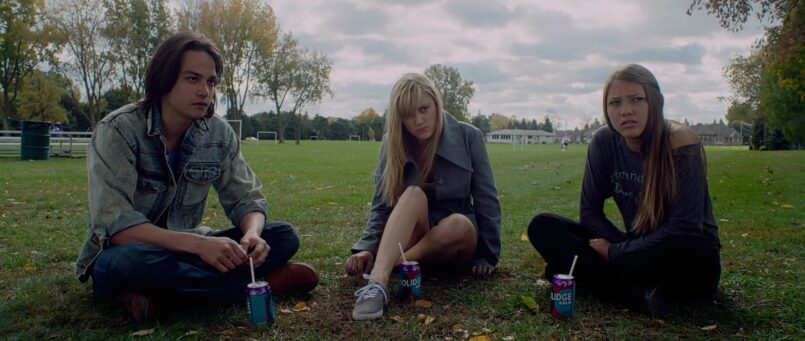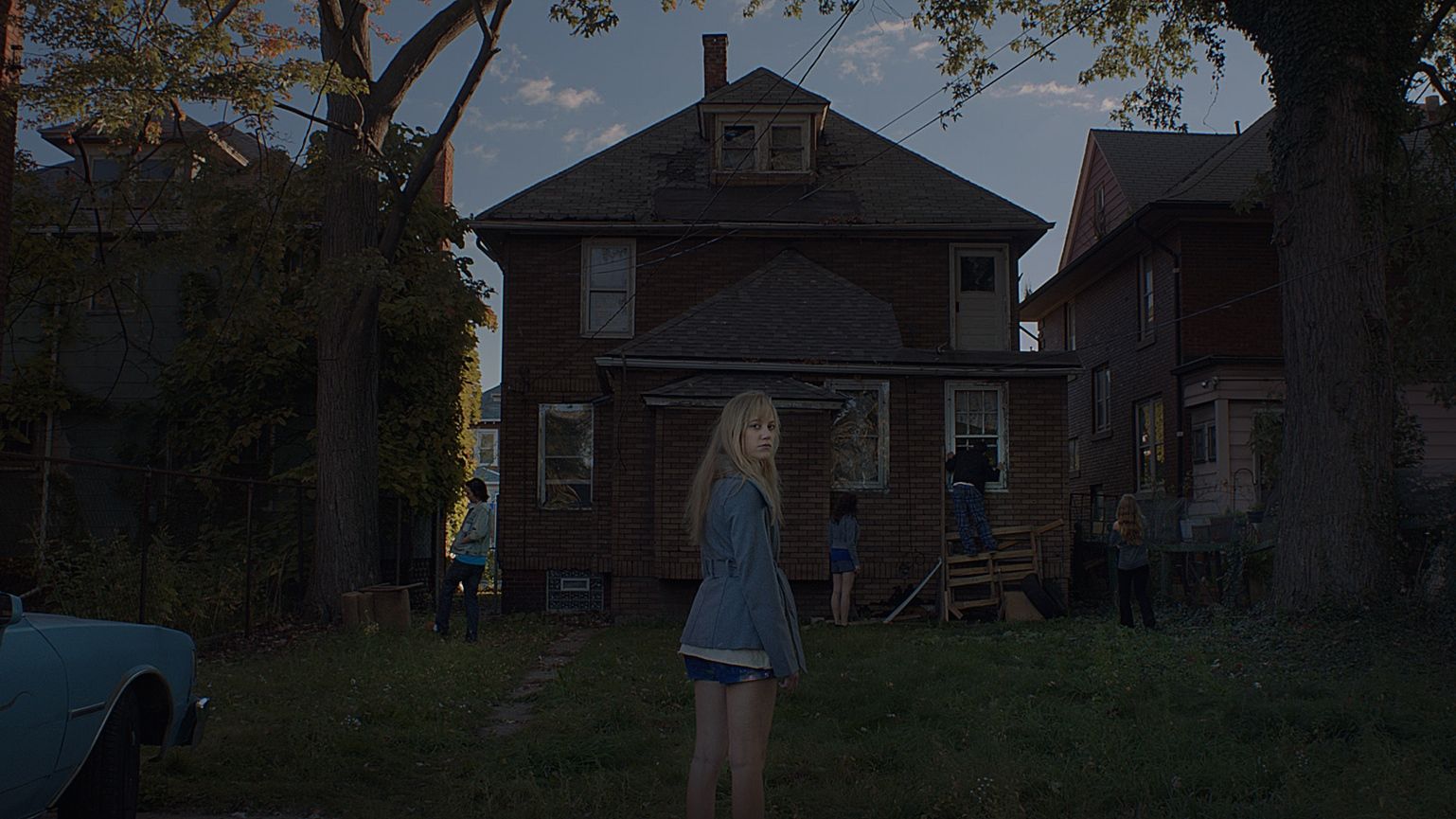In this film, our heroine, Jay (Maika Monroe, mixing vulnerability with self-assuredness), gets one hell of a “sex talk” when she learns her partner has marked her with a murderous demon that pursues its target slowly, but ceaselessly. The only way to dodge its pursuit: pass it on to a new sexual partner.
A good horror movie makes you squirm first, ask questions later. It Follows, the second feature from David Robert Mitchell, is such a thorough deconstruction of horror tropes (Something’s coming for you!) and themes (Sex kills!) that it removes a lot of shorthand and clichés the genre usually uses to fill in audiences quickly. This leads to some confusion as to story logic, like specifics of how the titular “It” works (Cue Clinton-esque questions of the definition of “sex”) and certain characters’ behaviors (take off those damn heels!), but it also creates an exhilarating sense of going off the map—a palpable feeling that anything could happen. As a low-budget indie director, Mitchell knows that dread of the unknown is an asset both cost-effective and priceless.
Mitchell uses every tool at his disposal to create menace in the presence of the shape-shifting creature…but especially in its absence. Obscured focus, shots lingering on empty space, and breathless waiting periods act as exquisite hype-men for the approaching threat. No tool in Mitchell’s kit is more effective than the excellent music by Disasterpeace, which resembles the iconic horror scores of John Carpenter (Halloween, The Thing) and Charles Bernstein (The Entity, A Nightmare on Elm Street). Retro style is all the rage with genre movies these days, but here Mitchell utilizes that style to add substance to Follows’ dream logic and surreal atmosphere. Anachronistic artifacts like classic cars and porno mags clash with modern cell phones, all in the arena of Detroit’s living ruins (beautifully photographed by director of photography Mike Gioulakis), until It Follows seems to exist in a bubble you can only run laps around without escaping.

Daniel Zovatto, Maika Monroe, and Lili Sepe in It Follows.
Unfortunately, not everything in this nightmare is memorable. Though Mitchell’s previous film, the coming-of-age drama The Myth of the American Sleepover, gave him a great eye for sincerity and authentic performances, many of Follows’ characters rely on props (a wine glass here, a junk-food habit there) instead of distinctive personalities. The film’s patterns start to get repetitive to a fault, and without enough escalation it seems to end with neither a bang nor a whisper, just a shrug of dissatisfaction.
But flaws are inevitable in attempting something personal and unusual, and the frightening risks Mitchell takes are more than worthwhile. His film is less interested in obvious STD metaphors like body horror and contagion panic than the perpetual melancholy that comes with an even more universal terror: disillusionment. Jay and her friends have been sitting around, waiting for life to happen, but in between sexual encounters and day-to-day disappointments, death came knocking instead. FL







